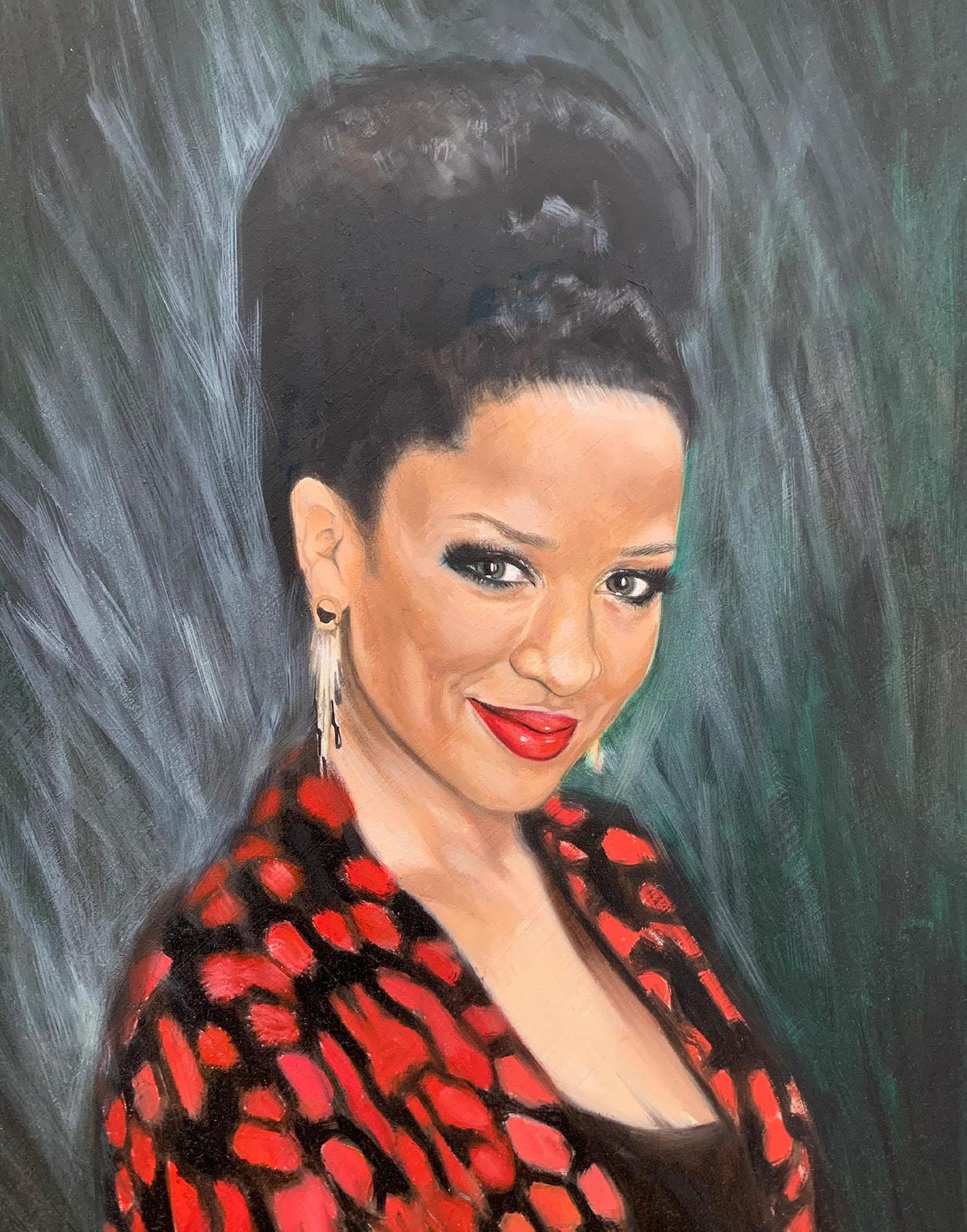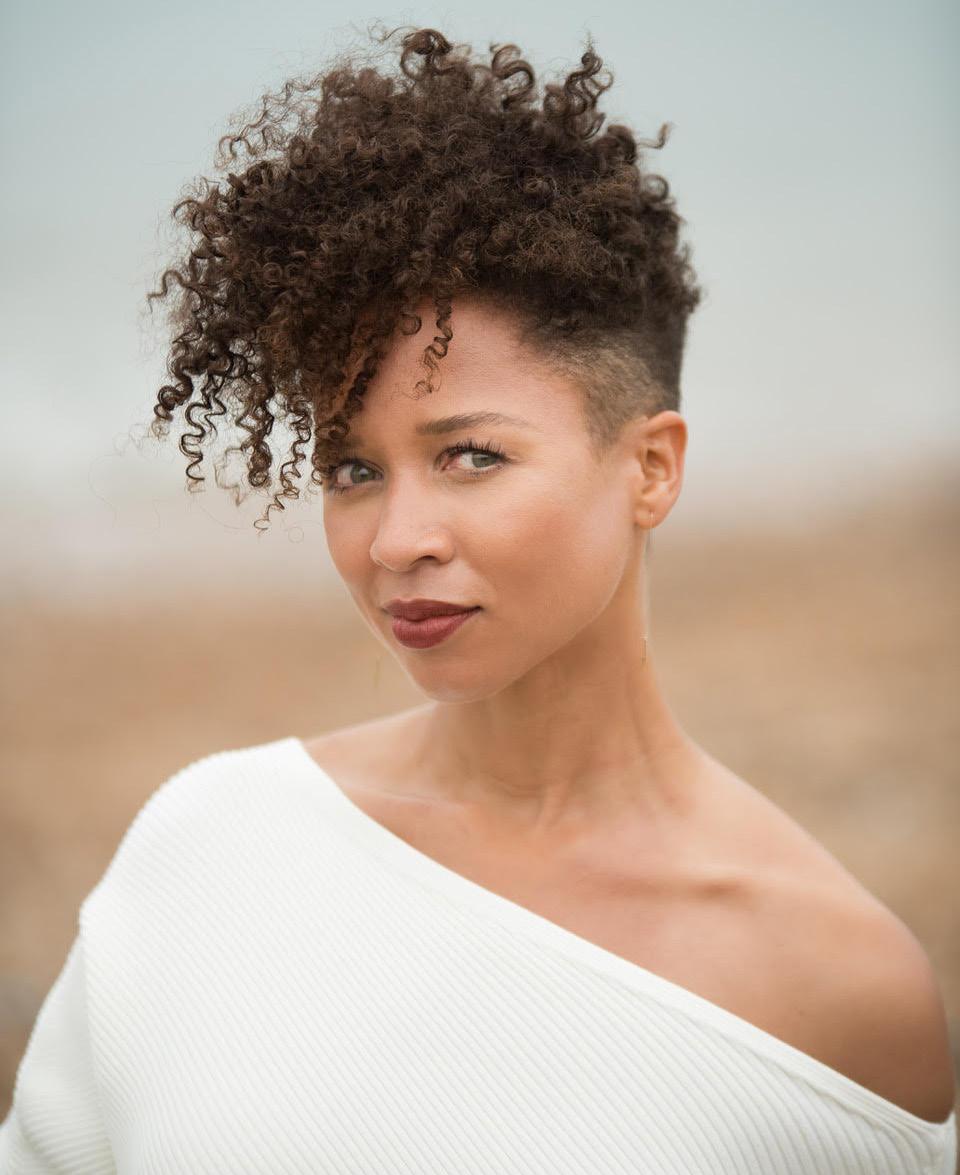
7 minute read
Natalie Gumede
from KulaMag Issue Three
by kula_mag
Oil painting by Libby Wells @libbywellstattoo Photography used as reference by Clare Walsh @clarewalshimagewalshimage As I gaze upon Libby Wells' incredible painting of me, it feels like I'm looking back in time.
She had initially reached out to me to discuss sharing some of my poetry around the subject of Black Lives Matter with Kula, but since sending some photographs of myself to her, I had radically changed my hair. The person reflected back no longer felt like me.
Advertisement
I dare say 2020 has had that effect on many of us. I moved to Hove just two weeks before official lockdown began; I was looking for a fresh start after nearly 20 years spent in London. As an actor, I had had a great 2019, following a not so great three years prior. I was looking forward to plugging into the local community, and the possibility of further work and travel opportunities. I was feeling hopeful!
Six months later I'm ever more hopeful, but for reasons greater than leaving the capital, my horizon has shifted dramatically. Covid-19 provided the same adjustment in perspective that my seafront walk did on our 'daily hour' of exercise!
The performing arts industry closed down in its entirety, which in the context of so many people losing their lives was a side issue, but the prospect of losing my livelihood was terrifying, nonetheless.
I knew only one friend in Hove in those strange weeks in March and April, so every interaction outside that was limited, but felt meaningful. The kindness of Eamon and Lou at Kernel of Hove made me feel like I was very much part of the town, and will have me returning to spend too much money on lovely vegan fare for years to come!
But with no work for the forseeable future and the normality we once knew turned on its head (perhaps never to return), came the invitation to assess what was important to us. What we could let go of. What we could do better in future if only that future was guaranteed. The chance to look within was laid out in front of us.
And then, in May, George Floyd was murdered in the United States. As if any of us could forget, the date of May 25th will be forever seared in my mind, as it is also my deceased father's birthday.
I am a bi-racial woman. I am a Person Of Colour, and I also identify as black. What the world witnessed, whether you read/watched the news, or could bring yourself to watch the video footage (I couldn't), felt like the ultimate manifestation of what a racist person has been able to get away with, within an environment that allows it. To be black and/or a POC is to have experienced many degrees of this racism. To be black and/or a POC is to know trauma.
I had naively, or rather desperately, hoped that this trauma wasn't being experienced by the next generation after me; that what I and so many other millions of people before me had gone through wasn't still happening to the same degree at least. That occupying white spaces, speaking into them, allowing oneself to be seen and absorbing all the abuse which came with it had at least helped move the needle on young people's experiences today. The purging of pain and sharing of all too familiar stories online showed me how wrong I was. Children are still being bullied at school. Black people still fear for their safety on a regular basis, often in the hands of the systems that should be in place to protect them. On a socio-economic level, the opportunities afforded to white people are still not present.
For lots of white people already feeling the collective human trauma of COVID, The Black Lives Matter movement provided a much needed awakening at a point they were receptive to it.
Up until now, our protest had not been heard. Our trauma had been denied. Our rights curbed, our potential thwarted, and our identity politicised and diminished; all in the face of the historical rhetoric around slavery, colonialisation and the British Empire. Now, for the first time, the inhumanity of the status quo up to this point has been felt by enough people that new questions are being asked. People are finally willing to have uncomfortable conversations. George Floyd gave racism a global stage.
In my career, I have most often taken the stage as the villain. If not the villain, then the cold, somewhat sinister, and always ‘strong female’ character. There are benefits to this. My scenes are often more action packed than if I were perceived as the ‘girl next door.’ But from entering the industry in my late teens, I struggled to book more than one small job a year until I stepped into my first role as a ‘baddie.’ I was always the token, or one of maybe two to three non white people in a cast, and never with my own storyline. Once I had my break, aged 27, playing a female domestic abuser to a male partner for two years in Coronation Street, the perception of me as an actor was set. I was told by more than one white person in power that I was expressly cast in ‘villainous’ roles because I was black. On the other side of the coin, black people would stop me in the street expressing their disappointment that I was fulfilling television’s stereotype of the black community.
Almost ten years later, the term ‘villain’ has morphed into ‘flawed’ or ‘complex,’ but I am still rarely the character one roots for. And I have a great time playing these characters – last year I had the role of my career playing Lex Luthor’s assistant Mercy Graves on DC’s ‘Titans.’ But if in 2020 POC are still playing the roles that have always been expected of them - either subservient, or dominant, with no degrees of nuance in between, then how much longer will it take for the world to understand the complexity of our experience in day to day life? How much longer will it take for this country to be truly honest about not only its history, but how that history has ensured racism is so deeply embedded in our society that it will take at least decades to uproot? I was encouraged by Brighton and Hove’s pledge to become an anti racist city – another reason I was so glad I moved here. But similarly to the pledges made across the creative sector and many other industries, statements and reports must pave the way to accountability and monitoring over the span of many years before we can declare that lasting change has been made.

I began journaling about five years ago as a way to navigate my mental health. This eventually developed into poetry, which helped me process my emotions in a more coherent way, and through sharing my poems – only amongst friends at first – I began realising that I was never alone. Whatever I was going through, someone else out there would be too.
Lockdown saw me picking up my pen again in the search for coherence amidst uncertainty. George Floyd urged me to open my wounds in order that they may heal. Black Lives Matter urged me to speak my truth more loudly in order that others may feel safe to do so too. I’m just one person, with one specific story to tell, and I’m aware that I too, have privilege in my experiences, and ignorance to other peoples’.
But reflecting upon the pre lockdown, big haired babe in the painting, I realise I have learned the importance of being my authentic self. A sense of community and belonging has become paramount to me, and as life is opening up again, I am thrilled to have found that for the first time in this amazing city. I can let go of the need to know what’s next, which my career never offered me anyway, but welcome in the opportunities that becoming comfortable with uncertainty inevitably bring.
And in future, I want to hold myself accountable to my own involvement in the Black Lives Matter movement, not just in my creativity and the messages I want to convey, but also in my workspaces, and whom else of colour occupies them. I will no longer be satisfied that I just made it through the door as it slams shut behind me; this time for reflection has given me renewed strength to campaign to keep that door open.
In the meantime, until the doors of the performance industries reopen, I have the privilege to educate myself further on the stories I’m yet to know, to hone my voice, and to consider how I can use the small platform I have to advocate for change.
Post lockdown, ever hopeful, and now for something greater than just for myself – if I ever have the repeat honour of being painted in the future, I hope I don’t recognise myself again.
Written by Natalie Gumede @natalie.gumede








